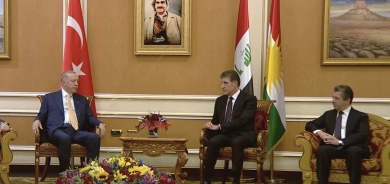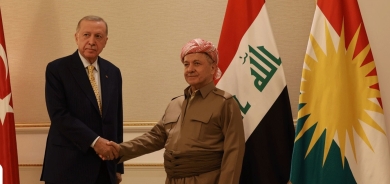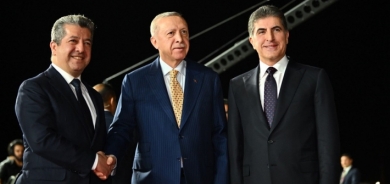Did Iraq Just Vote to Commit Suicide?

Given the rising level of violence over the past two years, the evidence of intense discontent with Maliki and his high-handed, if not dictatorial, rule is overwhelming-- especially among Iraq’s Sunni Arab communities. Glitches with the election itself confirmed the extent of the problem. The Maliki government insisted that instability was so pronounced in several cities throughout Anbar province that it was impossible to establish polling places and conduct orderly balloting. It is not clear whether that conclusion was accurate or whether the Maliki-controlled election commission simply invoked a convenient excuse to depress the vote total in a predominantly Sunni area hostile to the prime minister. In any case, the decision cast further doubt on Baghdad’s commitment to honest, democratic political standards, and it raises troubling questions about the legitimacy of the election.
Sunni Arab resistance to a third term for Maliki can be expected to be ferocious, but that is not the only source of trouble for the prime minister. Opposition to Maliki’s continued rule also is growing sharply in Kurdistan. Less than a week before the election Kurdistan Regional Government (KRG) President Masoud Barzani stated bluntly that “the Maliki we knew before he was in power was different from the Maliki who has been in power.” Barzani explicitly blamed the prime minister for the growth of “totalitarian” policies in Iraq. Although that was an especially forceful condemnation, Barzani’s criticism echoes that of other domestic political figures as well as international human rights organizations.
The possible defection of even some Kurdish political parties from the current governing coalition in Baghdad would be especially ominous, since Kurds will hold an important bloc of 62 seats in the new parliament. Even more worrisome, some Kurdish regional leaders have threatened to hold a referendum on secession from Iraq, if Maliki continues as prime minister. One of the KRG’s first actions following the election was to begin exporting oil through the Turkish port of Ceyhan, despite explicit objections from Baghdad.
All of these developments should be a warning sign to Washington to reassess policy regarding Iraq. Despite mounting indications over the past several years of Maliki’s corrupt, authoritarian rule, the Obama administration’s policy has been little more than one of rote support for his government. For example, U.S. leaders have echoed his assertion that the growing turmoil in Anbar and other Sunni Arab regions is entirely the result of al-Qaeda’s terrorist activity, and reflexively provided additional weapons to Baghdad to suppress the insurgency. Although there is no doubt that al-Qaeda in Iraq has been an important factor in the unrest, it is a dangerous oversimplification to attribute all of the trouble to that organization’s machinations. The reasons for the growing Sunni Arab opposition to Maliki’s government are far more complex than that.
The surging Kurdish complaints about Maliki should provide an even clearer reason why Washington needs to recalibrate its policy toward Baghdad. The long-standing, deep divisions within Iraqi society are becoming more pronounced, and the risk of the country’s fragmentation is growing. Selecting a new, compromise prime minister might avoid that result, but the outcome of the May elections increases the likelihood that Maliki’s corrupt, stifling rule will continue. That is bad news for Iraq, and unless Washington heeds the growing warning signs and becomes more agile in its policies, it may be bad news for U.S. goals in Iraq as well.
Ted Galen Carpenter, a senior fellow at the Cato Institute and a member of the editorial board at Mediterranean Quarterly, is the author of nine books and more than 500 articles and policy studies on international issues.

 Ted Galen Carpenter
Ted Galen Carpenter






